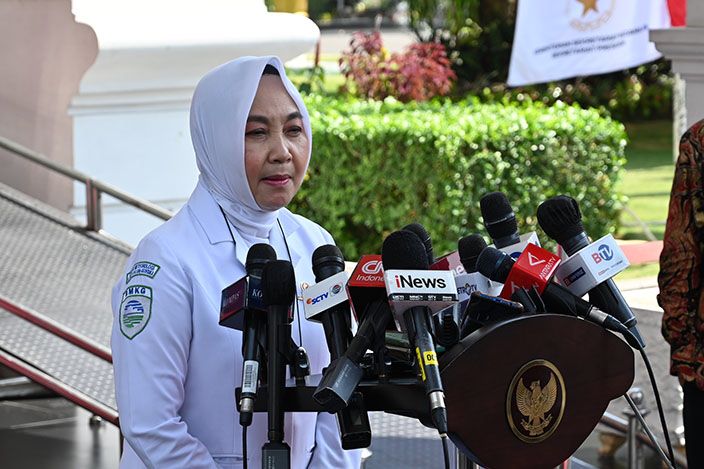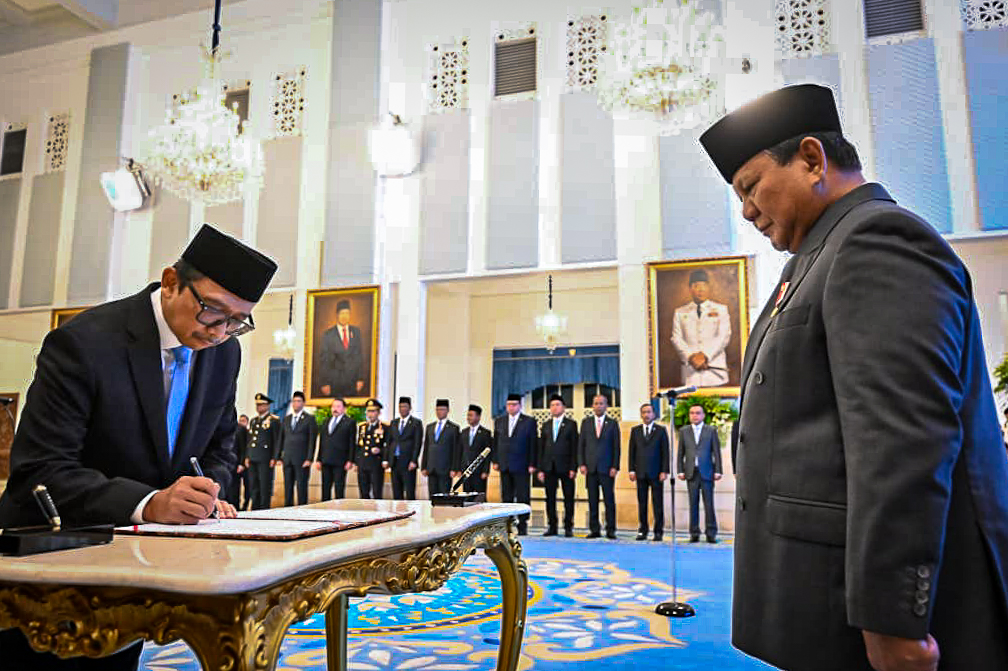Gov’t Strengthens Measures to Anticipate El Nino Impacts

Head of the Meteorology, Climatology and Geophysics Agency (BMKG) Dwikorita Karnawati delivers a press statement on Tuesday (07/18), in Jakarta. (Photo by: PR of Cabinet Secretariat/Dindha)
The Government will continue to strengthen measures to anticipate impacts of El Nino have been predicted to peak in August – September.
Head of the Meteorology, Climatology and Geophysics Agency (BMKG) Dwikorita Karnawati, Tuesday (07/18), said that a limited meeting led by President Joko “Jokowi” Widodo and attended by a number of ministers discussed measures and preparation to anticipate El Nino.
She went on to say that a “weak to moderate” El Nino will affect the region’s water supplies and also bring droughts. This will certainly bring an impact on agricultural production and national food security.
“Earlier, we have coordinated the anticipation. The anticipation which has started since February-April is still ongoing and needs to be strengthened,” she said in a press statement after joining a limited meeting.
The Head of BMKG also warned of potential hydro-meteorological hazards in Indonesia despite the country is experiencing dry season right now.
“Because Indonesia is influenced by two oceans, lies on the equator, and also has a mountainous topography, it is possible to find one region experiencing drought while the other region suffering from flood or experiencing hydro-meteorological hazards. It does not mean that all regions are experiencing drought simultaneously, there are some areas in between that still experience water-related hydro-meteorological hazards,” he explained.
Therefore, Dwikorita also appealed to all layers of society to play an active role in protecting the environment and continue to monitor weather developments from the BMKG.
“We also urge all to not only protect the environment, but also regulate water management, adapt cropping patterns [to climate change], and monitor the development of this very dynamic weather and climate information from BMKG from time to time,” she concluded. (DND/UN) (RAS/LW)








